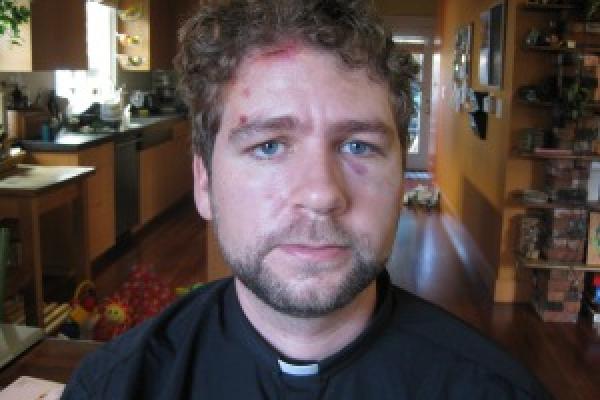Amidst the recent police violence in Oakland and the sure temptation of some protestors to resort to violence, I wrote this little reflection inviting all Occupiers to a renewed commitment to nonviolence.
There is a verse in the Bible that says, “Our battle is not against flesh and blood but against the principalities and powers of this dark world.” It is a reminder that there are people behind oppressive structures — people who laugh and cry and bleed just like everyone else — and those people are not the enemies, but the systems are.
I was reminded of this when I went into Bank of America on Move Your Money Day, and transferred my money to the non-profit credit union here in Philadelphia. As I went into the bank, I saw the smiling faces of Bank of America tellers who have become friends over the past decade. When I told them I was closing my account, one of the women asked jokingly, “You don’t like us anymore?” At first my heart sunk, but then I said, “No way, I love the heck out of all of you. I just don’t like the values of the bank you work for.” To my surprise, they all smiled. In fact they may not like the values of the bank they work for either. Even though I’ll be leaving Bank of America, I’m hoping to stay in touch with my friends there. I may even take them some coffees next week, which I’ll charge on my new credit union debit card.
It is always tempting to demonize people and humanize corporations. It’s easy to forget that we are up against something bigger than flesh and blood people. And it’s particularly easy to forget that people are not the enemy when people are shooting pepper spray in your face.
Read the Full Article

